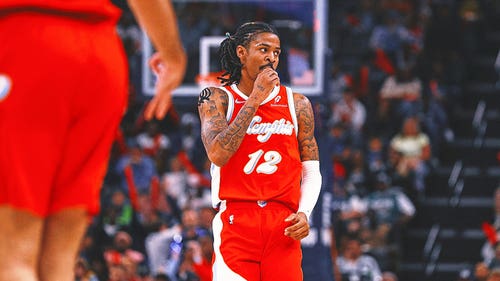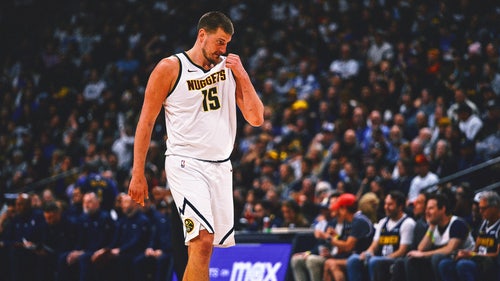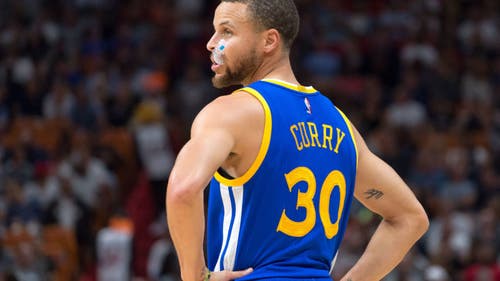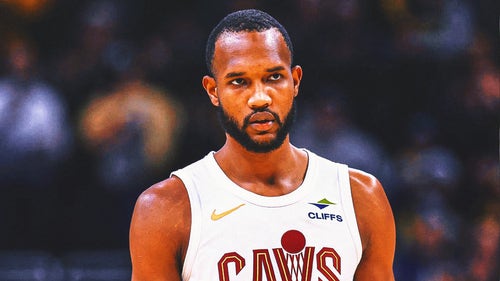
With Suns in Mexico '16, Remember Suns in Tokyo '90
Oct 3, 2015; Phoenix, AZ, USA; An old Phoenix Suns logo is displayed on the video board at a free scrimmage at the Arizona Veterans Memorial Coliseum. Mandatory Credit: Gerald Bourguet-Valley of the Suns
‘The Suns Rise in the Far East’
was a fan-made banner that hung near the rafters of Tokyo Metropolitan Gymnasium that exsemplified what the Phoenix Suns and the NBA were attempting to accomplish in late 1990.
The NBA selected the Phoenix Suns and Utah Jazz to open the 1990 regular season by playing two games in Tokyo, Japan, the first time two teams ever played regular season games outside of North America in United States professional sports history.
The event was part of a huge marketing blitz to help expand the game to fans on an international level, Japan being a huge market where American sports and entertainment had for decades been made popular on the island.
At the start of the 1990-91 regular season the Suns franchise was only three years removed from extreme disarray – The team didn’t have an active owner; there was talk that the Suns could relocate; the 1987-88 team finished 28-54, the second worst in franchise history – a team that was overhauled mid-season through several huge trades, and was further boosted by the league’s first unrestricted free agency signing, Tom Chambers.
Now Suns paraphernalia was seen all over Tokyo, the capital city of a country who was still new to the game of basketball.
Apr 16, 2014; Sacramento, CA, USA; Sacramento mayor and retired NBA player Kevin Johnson is recognized during a timeout during the second quarter in the game between the Sacramento Kings and the Phoenix Suns at Sleep Train Arena. Mandatory Credit: Kelley L Cox-USA TODAY Sports
Game One
To prepare for the time zone shift, and the lack of extended time to acclimate to the new timezone, Suns Head Coach Cotton Fitzimmons scheduled several 3am practices in Phoenix before the flight to get the players on a schedule similar to Tokyo. He remarked that should the trip be successful that he might schedule 3am practices throughout the season.
At tipoff, the sellout crowd of 10,111 at Tokyo Metropolitan Gymnasium was generally quite. They looked at the players on the court and the game in general in awe of the spectacle and over the course of the two games never fully developed a rooting interest. The arena would remain relatively quite throughout the two games, something that was noted by reporters as a little jarring.
On the court, as was their problem for much of the early-90s era of Suns history, Phoenix was unable to effectively defend the interior against bigger front courts, in this situation allowing the Jazz to take advantage of the Suns’ small size by starting Thurl Baily along with Karl Malone, Jeff Malone, and Mark Eaton. Utilizing high pick and roll’s, the future Hall of Fame tandem of John Stockton and Karl Malone, at times became the death of the Phoenix defense as the Suns defenders were rarely able to recover on the play, leading to a plethora of open shots and layups early on.
However, finding themselves down only 68-66 midway through the third quarter, the Suns defense clamped down as the offense ignited. Taking control on the back of a patented Phoenix run, the Suns outscored the Jazz 17-2 in five minutes, pulling away from their opponent, not to be challenged again.
Phoenix outscored Utah by 22 points in the second half, and the first leg of an NBA two-day double-header went to the Suns, 119-96. The Suns maintained far better control of their offensive possessions than Utah as the Jazz finished with 27 turnovers to the Suns’ 12. Phoenix’s defense came through as they finished with 15 steals compared to Utah’s 5.
Tom Chambers led all scorers with 38 points, doing so in 38 minutes. He also grabbed a team-tying high 10 rebounds – Mark West fought for 10 of his own as well.
Kevin Johnson scored 29 while dishing out 10 assists. He, Dan Majerle, and John Battle each had 3 steals. Majerle also scored 16.
For Utah, Karl Malone scored 33 points and had 10 rebounds. John Stockton scored 16 while dishing out a game-high 12 assists. Mark Eaton scored only 7 points but grabbed 13 rebounds and blocked 2 shots.
Backup point guard Delaney Rudd received 5 fouls in only 9 minutes of action.
| 1 | 2 | 3 | 4 | T | |
| Suns | 28 | 30 | 27 | 34 | 119 |
| Jazz | 29 | 28 | 15 | 24 | 96 |
Next: Suns v Jazz in Tokyo 1990 Game Two
Want your voice heard? Join the Valley of the Suns team!
The Trip
Players from both teams had complained about the regular season significance of the Tokyo games. As they were regular season games and not preseason, there was an inherent extra emphasis on preparation leaving less time to sight-see and attend public events, opportunities to meet new fans and expand the NBA brand without distraction.
John Stockton in particular took the two games very seriously and too was not fond of the games having regular season record implications. He noted to the media that in the season prior, the Jazz lost out on winning the Midwest Division crown by one game. While they did have home court advantage in the first round, they were the 4-seed and faced the 5-seed Phoenix, who fell nine games behind the Pacific Division winner Los Angeles Lakers, but were only one game behind the Jazz in the standings.
Thus for Utah, they were forced to face the tougher Suns, who wound up winning the five-game first round series, in five, even with the Jazz owning the home-court advantage. Had the Jazz won their division, they would have faced the much more mediocre Denver Nuggets, a team they had swept all four games from during the regular season.
Following the Tokyo games, the two teams needed to still fly back to the States, adding additional stress to the early season schedule as there would be a second significant time zone shift on their bodies in only a matter of a week. The Tokyo games were played at about Noon local time (8pm in Phoenix) and each barely ran over two hours, but they were played on back-to-back days and the chance for jet lag could effect how the teams performed in the successive games.
With their first game back in the U.S. played on November 8, Utah had four days before their third regular season game. The Suns only had three, playing their third game of the regular season on the 7th. Whether the extra day off would have mattered to Phoenix ended up being a moot point, as the Suns came back to the U.S. and won their next three games.
The Jazz won their first game back, though went on a four game losing streak immediately following, and lost five of their first six. Whether or not the trip played any factor on that stretch of games is un-quantifiable. But for the second straight year the Jazz lost their division to the San Antonio Spurts by one game, this time entering the playoffs as the 5-seed, facing the 4-seed Suns, who too finished one game ahead of the Jazz in the standings.
Nov 30, 2016; Minneapolis, MN, USA; New York Knicks head coach Jeff Hornacek looks on during the second quarter against the Minnesota Timberwolves at Target Center. The Knicks defeated the Timberwolves 106-104. Mandatory Credit: Brace Hemmelgarn-USA TODAY Sports
Game Two
In the second game of the Suns, Jazz matchup, it was again in front of a sell-out, quiet and polite arena. The fans generally looked upon the events unfolding with quiet contemplation, not really taking an opportunity to pick a rooting interest.
Jeff Hornacek sat out this game after suffering a minor neck injury in the Opening Night matchup, and the Suns further placed themselves behind the eight-ball with early foul trouble causing Mark West, Tom Chambers, and Kurt Rambis to play only limited minutes in the first half.
While Cotton Fitzimmons was forced to tinker significantly with the rotations, the two teams battled back-and-forth, one team never getting more than a few points ahead of the other, grinding it out with minimal scoring runs, and maximum hard-nosed grit.
The outcome of the game came down to the final moments with the Suns up one, Karl Malone was fouled with 41.6 seconds remaining. He made both free throws giving the Jazz a 102-101 lead. In the following Phoenix possession, Eddie Johnson missed an 18-footer at the top of the key with 28 seconds to go. Karl Malone held possession of the ball and with ten seconds remaining himself missed a jumper giving Phoenix one final opportunity to walk off with the win.
After a timeout, Tom Chambers was given the final shot, getting off a well-guarded jump shot at the buzzer that caromed off sealing the two team’s fates, a 102-101 Utah victory.
Kevin Johnson led the Suns with 28 points, though because of the deficiencies left by foul trouble, only managed 4 assists. Tom Chambers scored 11 points from free throws but otherwise struggled offensively scoring only 19 points on 4-12 shooting from the field.
Eddie Johnson and Kenny Battle each scored 11, and Dan Majerle led the Suns in rebounding with 9, though only scored 7 points. The team finished 0-5 from three.
Karl Malone led all players with 29 points and 14 rebounds. John Stockton finished with 15 points but also only dished out 4 assists. Thurl Bailey who also started for the second straight day, scored 15 points and grabbed 9 boards himself. Bailey would only start 20 of the remaining 80 games in the season.
| 1 | 2 | 3 | 4 | T | |
| Jazz | 31 | 22 | 29 | 20 | 102 |
| Suns | 29 | 23 | 30 | 19 | 101 |
Next: The Suns v Jazz Matchups the Rest of the SeasonOh Captain, My Captain: Eric Bledsoe's All-Star Argument: The Phoenix Suns need a star. They hope Devin Booker can be one. Although they might have one already in Eric Bledsoe.
Oct 3, 2015; Phoenix, AZ, USA; An old Phoenix Suns logo is displayed on the video board at a free scrimmage at the Arizona Veterans Memorial Coliseum. Mandatory Credit: Gerald Bourguet-Valley of the Suns
The Rest of the Season
The Suns and Jazz faced each other two more times in the regular season, with each team winning on their home court.
With the Suns finishing the regular season 55-27 and the Jazz ending 54-28, Phoenix grabbed the playoffs 4-seed and the two teams faced each other in the first round once again, this time with Phoenix holding the homecourt advantage.
Utah blew the Suns out of game one at Veterans Memorial Coliseum 129-90, though the Suns evened things up with a win in game two.
However, in games three and four in Utah, the Suns were unable to come through in the clutch and the Jazz won by 9 and 8, taking the series 3-1.
*Unless otherwise linked, information for this piece was draw from the Arizona Republic, November 2-4, 1990.
More from Valley of the Suns
This article originally appeared on











